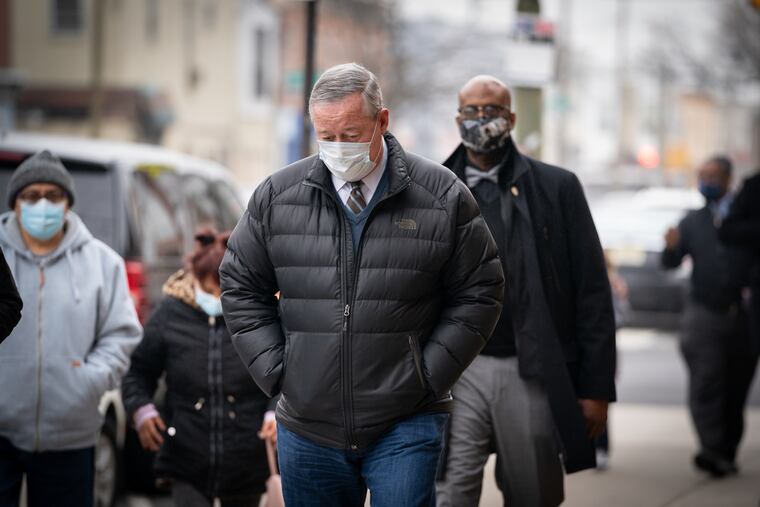Philly shouldn’t screw up windfall from the coronavirus stimulus package | Opinion
We've squandered a big cash influx before.

President Joe Biden visited Delaware County this week to promote the newly passed coronavirus relief package. As part of the American Rescue Plan Act, Philadelphia will receive about $1.4 billion in aid, an influx the city has squandered before — a history we urgently need to learn from.
In 1999, the City of Philadelphia issued $1.25 billion in bonds to prop up the municipal pension, hoping to tackle and improve the pension’s funded status. At the time, the pension was not in good shape. Its projected assets could only meet half its projected expenses, like health benefits and allowances for retirees. The goal in issuing bonds was simple: borrow money from creditors, invest in the stock market, and pocket the difference between the interest on debt and the return on investment.
» READ MORE: Philly says ‘desperately needed’ stimulus funding will help avert painful budget cuts
Briefly, the pension’s funded status soared. But the timing was poor: the dot-com bubble burst, the pension’s assets shrank, and the city still owed high interest at 6.61%.
The scars of that gamble still sting. Philadelphians continue to service pension debt, regularly $100 million-$200 million per year. And today the pension’s funded status is no better than it was during the Clinton administration.
In the past year, the city has faced significant, though not dire, financial pressures. Total cash receipts for the city fell approximately 5% for the last nine months of 2020 vs. 2019. As of December, the city projects total expenditures for the current fiscal year to exceed receipts by $250 million.
This is where $1.4 billion of American Rescue Plan money — roughly one-fourth of the city’s annual budget — comes in. By the most generous calculations, it surpasses the city’s present pandemic-induced needs by several hundred million dollars. With such a windfall, the city has a chance to rebuild after a year of chaos. While it isn’t enough money to fix the pension, it is enough to take aim at other long-standing problems.
Here are some possible moves:
Lower the wage and business taxes. Philadelphia has one of the highest tax burdens in the country. It discourages the growth of business, which reduces city revenues, which reduces city services. Moreover, such taxes are sensitive to fluctuations in the economy, which means in times of distress, the city’s coffers take an inordinate hit.
To maintain revenues and promote stability, the city should shift taxes onto properties, especially commercial real estate. Property taxes are tied to the value of buildings and land, not business revenues. Charge a pretty penny if necessary, but don’t hamper business growth (or discourage businesses from setting up shop in the first place).
» READ MORE: Biden says ‘help is on the way’ as he kicks off campaign to sell the $1.9 trillion stimulus outside Philly
Next, repeal or reduce the beverage tax. Unless this tax is intentionally designed to “correct” human behavior, like a tax on cigarettes, there’s no reason to keep it so high, especially when most of its proceeds remain unspent after several years and the effects on sugary beverage consumption are modest. Because the excise tax is a flat 1.5 cents per ounce — and thus regressive — it impacts the poorest neighborhoods of the city most, adding unnecessarily to the tax burdens of the city’s most vulnerable residents.
Provide additional financial support to Philadelphians. At present, the city offers low-interest loans to encourage home repair among eligible Philadelphians. Because many residents have a history of distrust with financial institutions, local government initiatives can bridge the gap between needs and necessary resources. Beyond home repair, the city should offer loans and lines of credit to ease the crippling high-interest debts of Philadelphia residents. And it should provide additional short-term assistance to help businesses get back on their feet as the pandemic subsides.
Philadelphia is regularly criticized as a tax-and-spend Democratic city. We should put new dollars to good use and behave responsibly with our finances. Remember, we mismanaged hundreds of millions (if not billions) before. Two decades from now, let’s look back on this era with pride.
Matthew Jeffrey Vegari is a writer and economics researcher who previously worked for the City of Philadelphia as a policy associate.